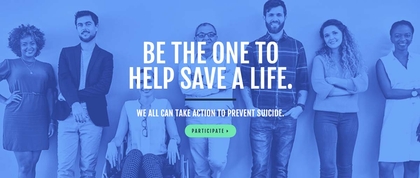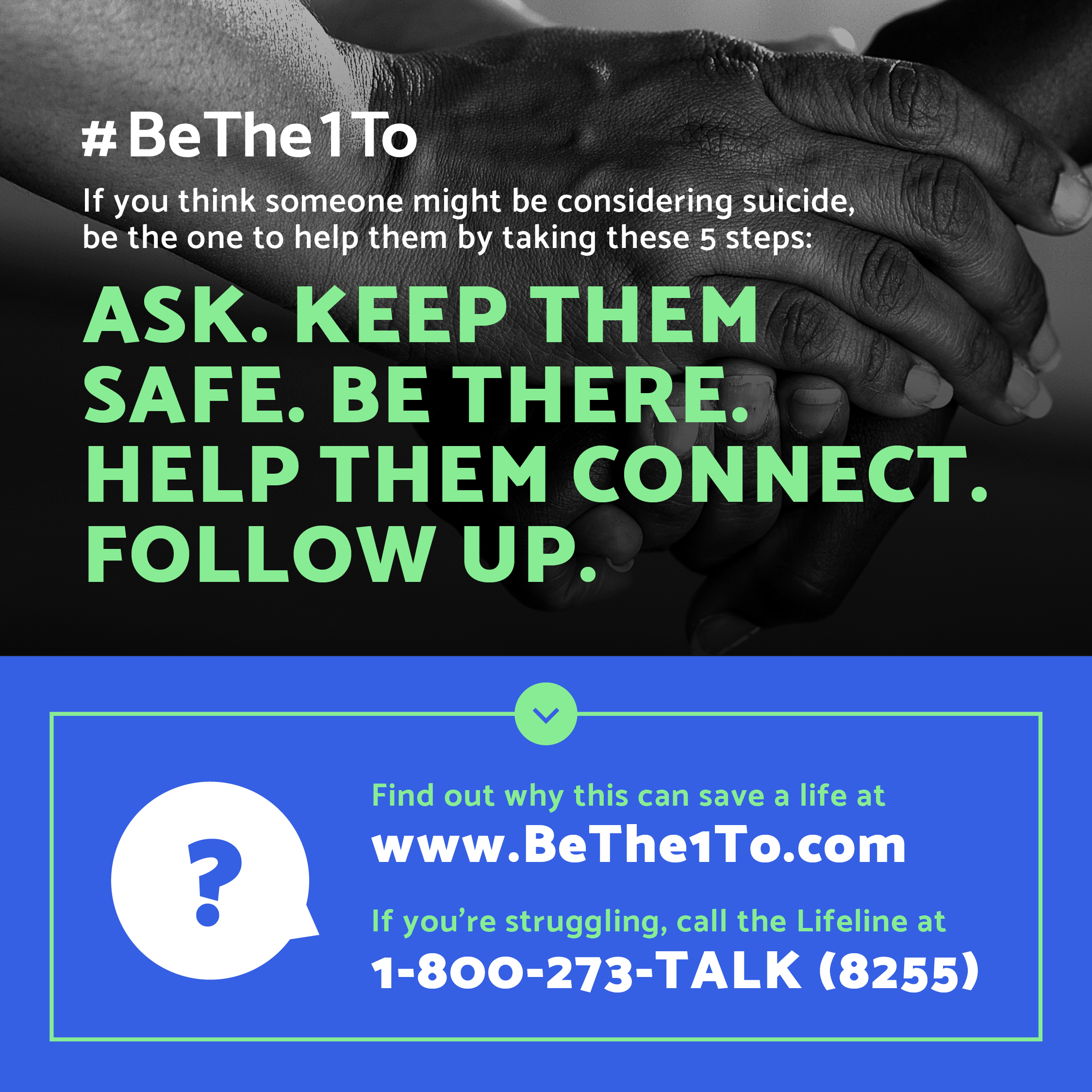
Source: #BeThe1To
Be Advised: This commentary references suicide and self-harm
We marked two dates this week: Tuesday the 10th was World Suicide Prevention Day, and Wednesday was the anniversary of the 9/11 terrorist attacks. The taking of lives – whether by one’s own hand or by another’s – weighs heavily on our nation’s mental health and demands a coordinated, national response.
According to the World Health Organization, a person dies from suicide every forty seconds. It’s a staggering statistic and no community is immune. The Report on the National Suicide Hotline Improvement Act of 2018 says, “Suicide rates are higher across at-risk populations, including veterans and LGBTQ communities. More than 20 veterans die by suicide every day, and between 2008 and 2016 there were more than 6,000 veteran suicides each year.”
Recent research has identified specific professions that have elevated rates – including veterinarians and those in law enforcement (NBC News). The 2018 recession was associated with elevated suicide rates as well. As rates have risen, suicide is being described as a public health epidemic that demands we actively confront and significantly reduce its stigma and frequency.
Many in public health are aware of research that finds suicide can spread through adolescent social networks and be compounded by the impact of how the subject is portrayed in media, prompting some to worry that its mere discussion will have the worst possible unintended consequences. In fact, there is cause for concern.
In May, a study published in JAMA Psychiatry focused on the popular Netflix series “13 Reasons Why,” which was controversial for its portrayal of the suicide of a 17-year-old girl. The authors reported an estimated 13% increase in suicide among individuals aged 10 to 19 in the three months after the show’s release, corresponding to 94 more suicides than would be expected.
Researchers also know that having a gun in the home is linked to higher rates of homicide, suicide and accidental death. Firearm suicide makes up two thirds of all gun deaths (Everytown for Gun Safety) and the U.S. gun suicide rate is tenfold higher than other high-income nations (Giffords Law Center).
To reduce this trend, the #BeThe1To campaign suggests five steps (below) “encouraging people to reach out to those who may be suffering from suicidal thoughts.”
Just as in the aftermath of 9/11, we must all be alert and if we see something, we must say something.
![]()
Cheryl G. Healton, DrPH
Dean

Created by: National Suicide Prevention Lifeline; Source: BeThe1To
Five Steps:
Ask: According to the National Action Alliance for Suicide Prevention, asking the question "Are you thinking about suicide?" lets the person know that you're open to speaking about suicide in a non-judgmental and supportive way. It can open the door for someone to talk about how they feel or what they're going through. Other questions could include, "How do you hurt?" and "How can I help?" NAASP advises that when asked, friends and family should not promise to keep the person's thoughts of suicide a secret.
Keep them safe: NAASP says it's important to find out whether the person in question has already done anything to try to die by suicide before being approached. Depending on whether they have a plan in place or if they have access to firearms or other potential weapons, people looking to provide support may need to call emergency services.
Be there: This could mean being physically present for someone or speaking with them on the phone, though it's important to follow through. This can be life-saving, according to NAASP.
Help them connect: This could include developing a safety plan or a crisis plan, connecting the person with a health professional, or calling a support line such as the National Suicide Prevention Lifeline at 1-800-273-8255.
Follow up: NAASP advises that this could be leaving a message to see how the person is doing, sending a text or giving them a call. This type of contact can increase feelings of connectedness.If you or anyone you know has thoughts of suicide, free confidential help is available 24/7 at the National Suicide Prevention Lifeline. Call 1-800-273-8255.
Here at NYU, if you are urgently concerned about someone’s safety from themselves or others, please call 911 and then call NYU Public Safety at 212-998-2222).